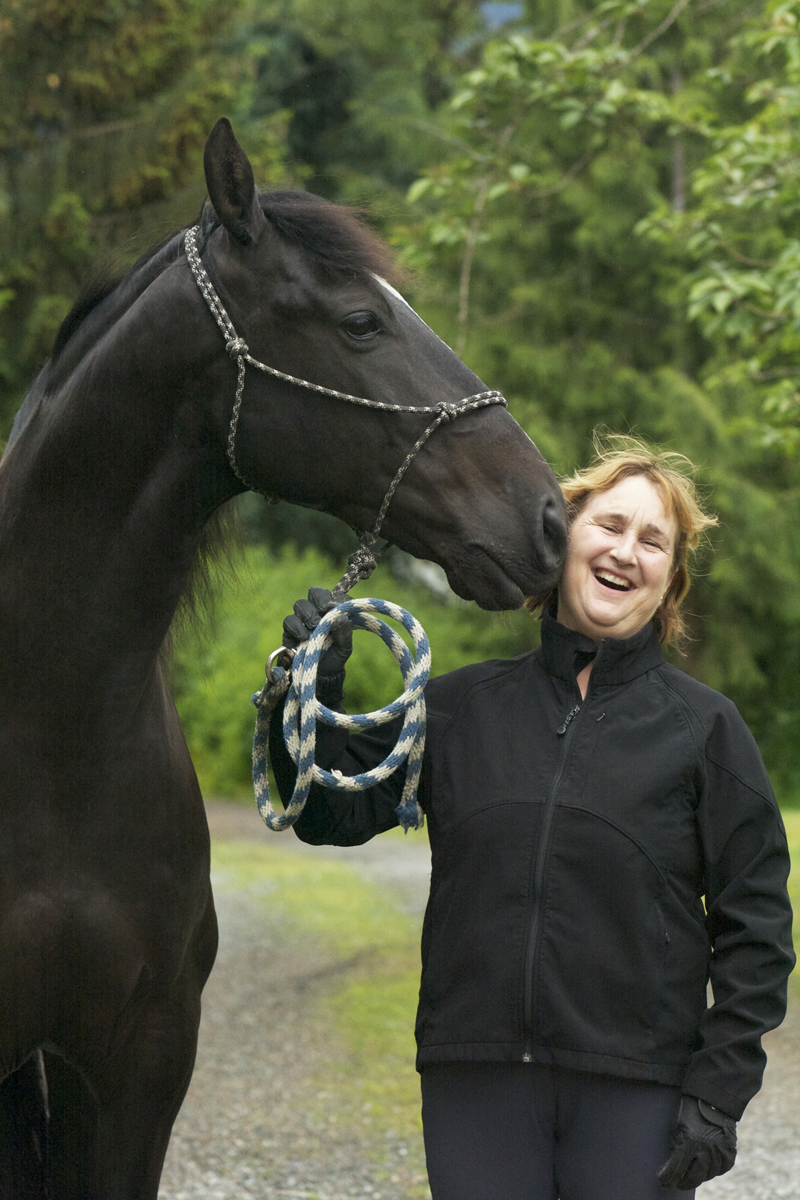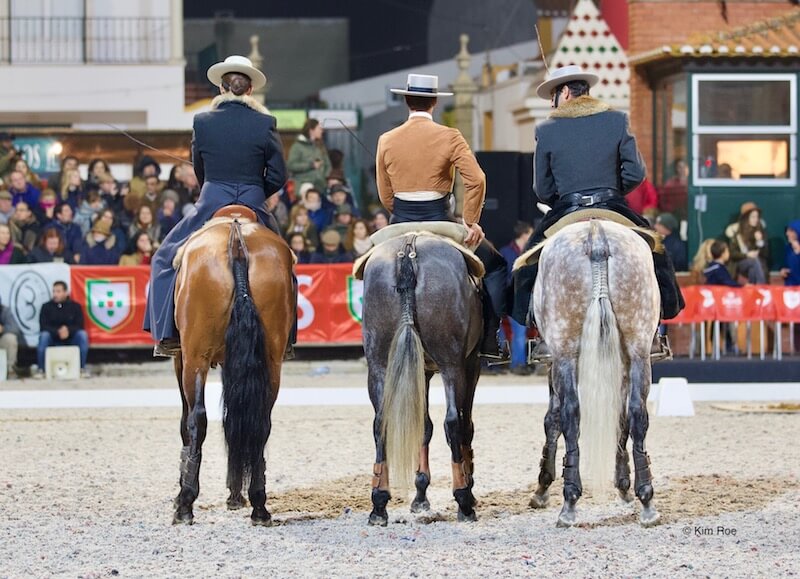Attention to Detail
By Kim Roe

At 9 years old I begged my mother for jumping lessons. I grew up wild and free on my little cow pony riding western (or more often bareback), but I dreamed of riding long-legged jumping horses like the ones I’d seen at the Cow Palace. Since I was jumping my poor mare over everything I could find, from logs to wheelbarrows, my mother relented. We borrowed an English saddle and I began weekly lessons with Nancy, a local hunter-jumper trainer.
Nancy taught me about two-point position, posting diagonals, and correct striding into fences. She showed me how to walk a jump course successfully. She taught me to braid, groom (no shedding blades!) palpate legs, check respiration and pulse, correctly warm-up and cool-down, check for mold in my hay, clean up around my horse trailer, wrap legs, and on and on. She taught me to respect my instructors and how to listen. (She once pulled me right off my horse in a lesson when I showed up chomping on gum.)
Mostly, she taught me to take the best care possible of my horse and see things as a horse does. Our relationship lasted into my early 20’s when I moved to Washington. I consider her a mentor and credit her with most of my horsemanship skills.
Nancy would say, “Pay attention to the little details.” I never really understood this as a kid. But as the years rolled by I’ve learned that attention to detail is what separates riders from horsemen. It’s the details of daily horsemanship that make the difference––not only in competition but in the overall health and happiness of your horse. Things like clean and well-fitting tack, clean water, safe fencing, a tidy barn, consistency in training, and correct nutrition.
Attention to detail is now a phrase we hear a lot. It’s used by employers seeking employees, school teachers, and coaches. With horses it’s everything. If you aren’t paying attention to the little details, you’re not paying attention to your horse.
Now I’m the one using the phrase with my students, and I sometimes see their eyes glaze over when I begin a little lecture about something like poorly fitting tack, blanket rubs on their horse’s shoulders, or loose clinches on their shoes. I feel a bit naggy, but I also truly believe it’s my duty to the student and their horse.
I’m grateful to Nancy who took the time to turn me into a horseman. We all start with horses because of our love for them, and it’s by paying attention to all the details of their lives that we give them the care they deserve.
I welcome your input and stories. Contact me at kim@nwhorsesource.com.

Kim Roe grew up riding on the family ranch and competed in Western rail classes, trail horse, reining, working cow, and hunter/jumper. She trained her first horse for money at 12 years old, starting a pony for a neighbor.
Kim has been a professional dressage instructor in Washington state for over 30 years, training hundreds of horses and students through the levels. In recent years Kim has become involved in Working Equitation and is a small ‘r’ Working Equitation judge with WE United.
Kim is the editor of the Northwest Horse Source Magazine, and also a writer, photographer, and poet. She owns and manages Blue Gate Farm in Deming, Washington where she continues to be passionate about helping horses and riders in many disciplines.

